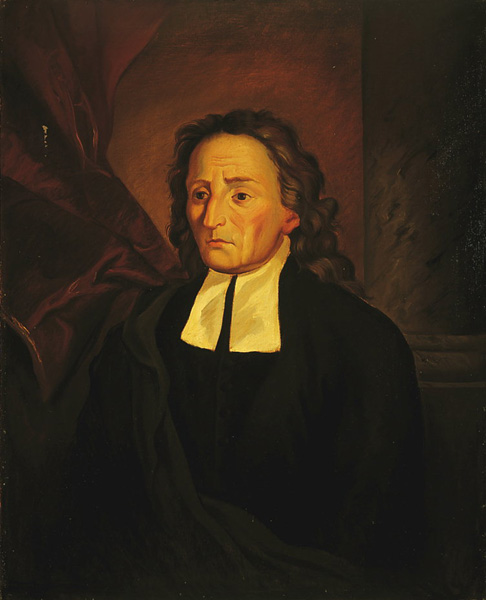
Giambattista Vico
Giambattista Vico (born Giovan Battista Vico /ˈviːkoʊ/; Italian: [ˈviko]; 23 June 1668 – 23 January 1744) was an Italian philosopher, rhetorician, historian, and jurist during the Italian Enlightenment. He criticized the expansion and development of modern rationalism, finding Cartesian analysis and other types of reductionism impractical to human life, and he was an apologist for classical antiquity and the Renaissance humanities, in addition to being the first expositor of the fundamentals of social science and of semiotics. He is recognised as one of the first Counter-Enlightenment figures in history.
Giambattista Vico
23 January 1744 (aged 75)
University of Naples (LL.D., 1694)
- Principî di Scienza Nuova
- De antiquissima Italorum sapientia
- Class struggle[1]
- Criticism of rationalism and reductionism
- Humanities as human science or social science
- Ideal eternal history
- Philosophy of history
- Theory of political mythology
- "Verum esse ipsum factum" (an early form of constructivist epistemology)
The Latin aphorism Verum esse ipsum factum ("truth is itself something made") coined by Vico is an early instance of constructivist epistemology.[8][9] He inaugurated the modern field of the philosophy of history, and, although the term philosophy of history is not in his writings, Vico spoke of a "history of philosophy narrated philosophically."[10] Although he was not an historicist, contemporary interest in Vico usually has been motivated by historicists, such as Isaiah Berlin, a philosopher and historian of ideas,[11] Edward Said, a literary critic, and Hayden White, a metahistorian.[12][13]
Vico's intellectual magnum opus is the book Scienza Nuova or New Science (1725), which attempts a systematic organization of the humanities as a single science that recorded and explained the historical cycles by which societies rise and fall.[14]
The principle of Verum factum[edit]
Vico is best known for his verum factum principle, first formulated in 1710 as part of his De antiquissima Italorum sapientia, ex linguae latinae originibus eruenda (1710) ("Of the most ancient wisdom of the Italians, unearthed from the origins of the Latin language").[16] The principle states that truth is verified through creation or invention and not, as per Descartes, through observation: "The criterion and rule of the true is to have made it. Accordingly, our clear and distinct idea of the mind cannot be a criterion of the mind itself, still less of other truths. For while the mind perceives itself, it does not make itself." This criterion for truth would later shape the history of civilization in Vico's opus, the Scienza Nuova (The New Science, 1725), because he would argue that civil life—like mathematics—is wholly constructed.
Influence[edit]
Samuel Beckett's first published work, in the selection of critical essays on James Joyce entitled Our Exagmination Round His Factification for Incamination of Work in Progress, is "Dante... Bruno. Vico.. Joyce". In it, Beckett sees a profound influence of Vico's philosophy and poetics—as well the cyclical form of the Scienza Nuova—on the avant-garde compositions of Joyce, and especially the titular Work in Progress, viz. Finnegans Wake.
In Knowledge and Social Structure (1974), Peter Hamilton identified Vico as the "sleeping partner" of the Age of Enlightenment.[17] Despite having been relatively unknown in his 18th-century time, and read only in his native Naples, the ideas of Vico are predecessors to the ideas of the intellectuals of the Enlightenment. Moreover, recognition of Vico's intellectual influence began in the 19th century, when the French Romantic historians used his works as methodological models and guides.[17]
In Capital: Critique of Political Economy (1867), Karl Marx's mention of Vico indicates their parallel perspectives about history, the role of historical actors, and an historical method of narrative.[18] Marx and Vico saw social-class warfare as the means by which men achieve the end of equal rights; Vico called that time the "Age of Men". Marx concluded that such a state of affairs is the optimal end of social change in a society, but Vico thought that such complete equality of rights would lead to socio-political chaos and the consequent collapse of society. In that vein, Vico proposed a social need for religion, for a supernatural divine providence to keep order in human society.[19]
In Orientalism (1978), Edward Said acknowledged his scholar's debt to Vico,[20] whose "ideas anticipate and later infiltrate the line of German thinkers I am about to cite. They belong to the era of Herder and Wolff, later to be followed by Goethe, Humboldt, Dilthey, Nietzsche, Gadamer, and finally the great twentieth century Romance philologists Erich Auerbach, Leo Spitzer, and Ernst Robert Curtius."[20] As a humanist and early philologist, Vico represented "a different, alternative model that has been extremely important to me in my work", which differed from mainstream Western prejudice against the Orient and the dominating "standardization" that came with modernity and culminated in National Socialism.[20] That the interdependence of human history and culture facilitates the scholars' task to "take seriously Vico's great observation that men make their own history, that what they can know is what they have made, and extend it to geography. As geographical and cultural entities—to say nothing of historical entities—such locales, regions, and geographical sectors as 'Orient' and 'Occident' are man-made."[20]